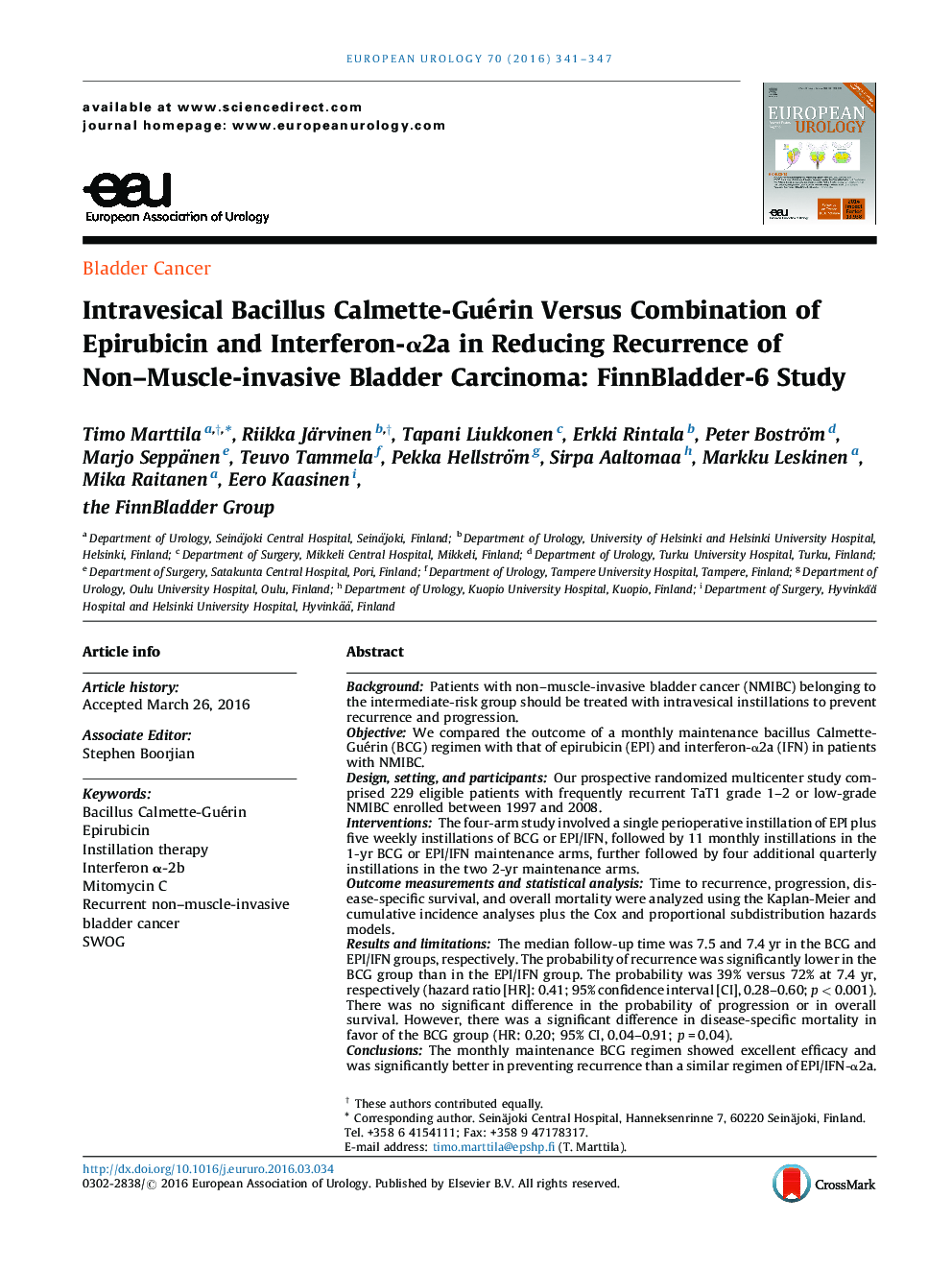| Article ID | Journal | Published Year | Pages | File Type |
|---|---|---|---|---|
| 6175744 | European Urology | 2016 | 7 Pages |
BackgroundPatients with non-muscle-invasive bladder cancer (NMIBC) belonging to the intermediate-risk group should be treated with intravesical instillations to prevent recurrence and progression.ObjectiveWe compared the outcome of a monthly maintenance bacillus Calmette-Guérin (BCG) regimen with that of epirubicin (EPI) and interferon-α2a (IFN) in patients with NMIBC.Design, setting, and participantsOur prospective randomized multicenter study comprised 229 eligible patients with frequently recurrent TaT1 grade 1-2 or low-grade NMIBC enrolled between 1997 and 2008.InterventionsThe four-arm study involved a single perioperative instillation of EPI plus five weekly instillations of BCG or EPI/IFN, followed by 11 monthly instillations in the 1-yr BCG or EPI/IFN maintenance arms, further followed by four additional quarterly instillations in the two 2-yr maintenance arms.Outcome measurements and statistical analysisTime to recurrence, progression, disease-specific survival, and overall mortality were analyzed using the Kaplan-Meier and cumulative incidence analyses plus the Cox and proportional subdistribution hazards models.Results and limitationsThe median follow-up time was 7.5 and 7.4 yr in the BCG and EPI/IFN groups, respectively. The probability of recurrence was significantly lower in the BCG group than in the EPI/IFN group. The probability was 39% versus 72% at 7.4 yr, respectively (hazard ratio [HR]: 0.41; 95% confidence interval [CI], 0.28-0.60; p < 0.001). There was no significant difference in the probability of progression or in overall survival. However, there was a significant difference in disease-specific mortality in favor of the BCG group (HR: 0.20; 95% CI, 0.04-0.91; p = 0.04).ConclusionsThe monthly maintenance BCG regimen showed excellent efficacy and was significantly better in preventing recurrence than a similar regimen of EPI/IFN-α2a.Patient summaryA monthly bacillus Calmette-Guérin (BCG) regimen showed excellent efficacy and was significantly better in preventing recurrence than a similar regimen of epirubicin and interferon-α2a.Trial registrationRegistration was not considered necessary at this stage of the follow-up because the study was initiated as early as in 1997, before the current requirements concerning study registrations were implemented.
